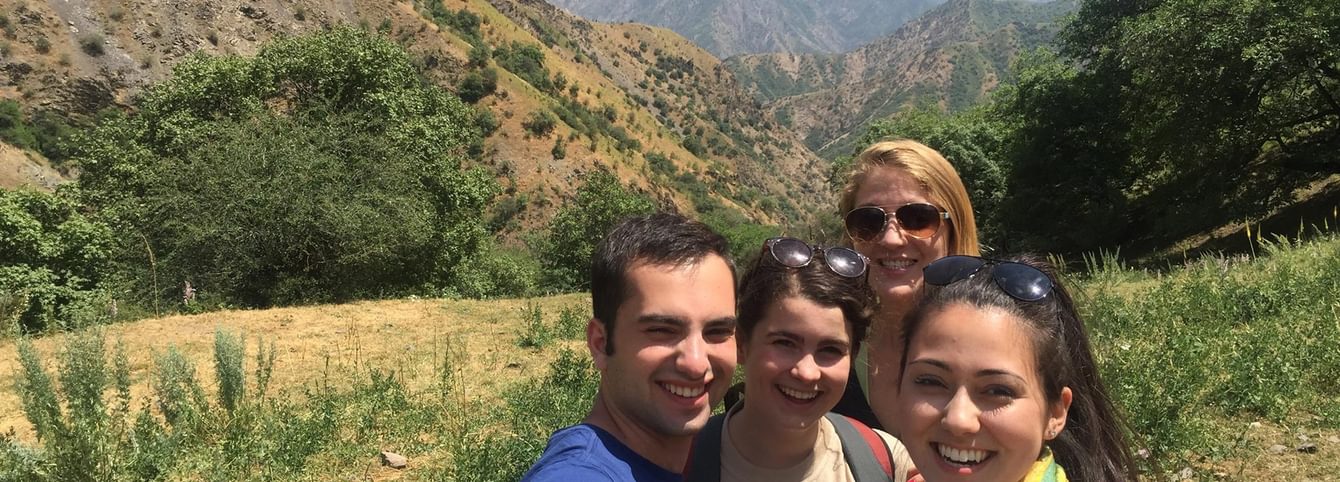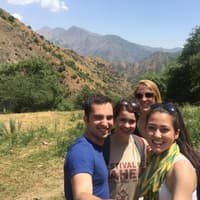Daniel Bromberg
Daniel Bromberg is an alumnus of the 2015 CLS Persian program in Dushanbe, Tajikistan. He is currently a Fulbright Research Fellow at Maastricht University; he will graduate this year with a Master of Science in Public Health and plans to work for a few years in global health and development before going for his next degree. He’s a Bostonian at heart, and his fondest childhood memories are about summers on Massachusetts beaches. He still can’t stay away from the ocean, but when he’s not swimming, he bakes sourdough breads and pastries.
Why Persian?
As a global health professional, it is important for me to know at least a few foreign languages. I already speak Russian, so Central Asia is a natural region of focus. I decided to learn Persian because I hope to be able to communicate effectively while designing health projects in Tajikistan, Afghanistan, and some areas of Uzbekistan. I’ve already had some opportunities to do this: this last February, I went to Lesbos, Greece to work in a refugee camp. I spoke Persian every day as the majority of the refugees with whom I worked were from Afghanistan.
On learning to make mistakes
After CLS, I am a lot more confident speaking Persian. Although I’m still not perfect, I think being immersed in the language got me to the point where I am comfortable with making mistakes and explaining my way around problems.
In a word…
My favorite Persian word would definitely have to be taarof. Though taarof is just one word, it has an entire culture wrapped up inside of it. Taarof is the Persian system of politeness; for example, according to taarof, it would be considered rude to accept something the first time it is offered to you. There are a bunch of these little taarof rules, and they make speaking Persian a lot more flowery and fun.
On food and family
My host family was more hospitable than anyone I had ever met before. My host mom was also the best cook. She would make osh (Tajik pilaf) and sambusa (meat-filled pastries) better than any restaurant in Dushanbe, or any of the other families I visited. One of her household staples came as a surprise to me: people in Tajikistan eat a lot of hot dogs! My host family would have them every morning for breakfast. I had never associated Central Asia with the common frank.
A “sweet” memory
People in Tajikistan celebrate Eid al-Fitr differently than in other Muslim countries. Children dress up in traditional costumes and go house-to-house asking for sweets. It reminds me a little bit of trick-or-treating on Halloween. I remember my host family’s house being flooded with dozens of screaming kids while I tried, and failed, to give the candy out in some sort of orderly way.
If you had one day in Tajikistan…
Visit Iskandarkul, a glacial lake way up in the mountains. It’s a really peaceful place; you can sit on one of the banks and look at the lake and the mountains rising up on all sides of the water. It’s a little bit hard to get to from Dushanbe, but hire a driver – the ride over the mountains is beautiful.
Words of wisdom
Applicants: know exactly why you want to learn the language that you’re applying to and be committed to using it in a future career. The more specific you are, the likelier it is you’ll be accepted.
Participants and alumni: you’ll be surprised where your language comes in handy. I use my Persian all the time in pretty random circumstances!



